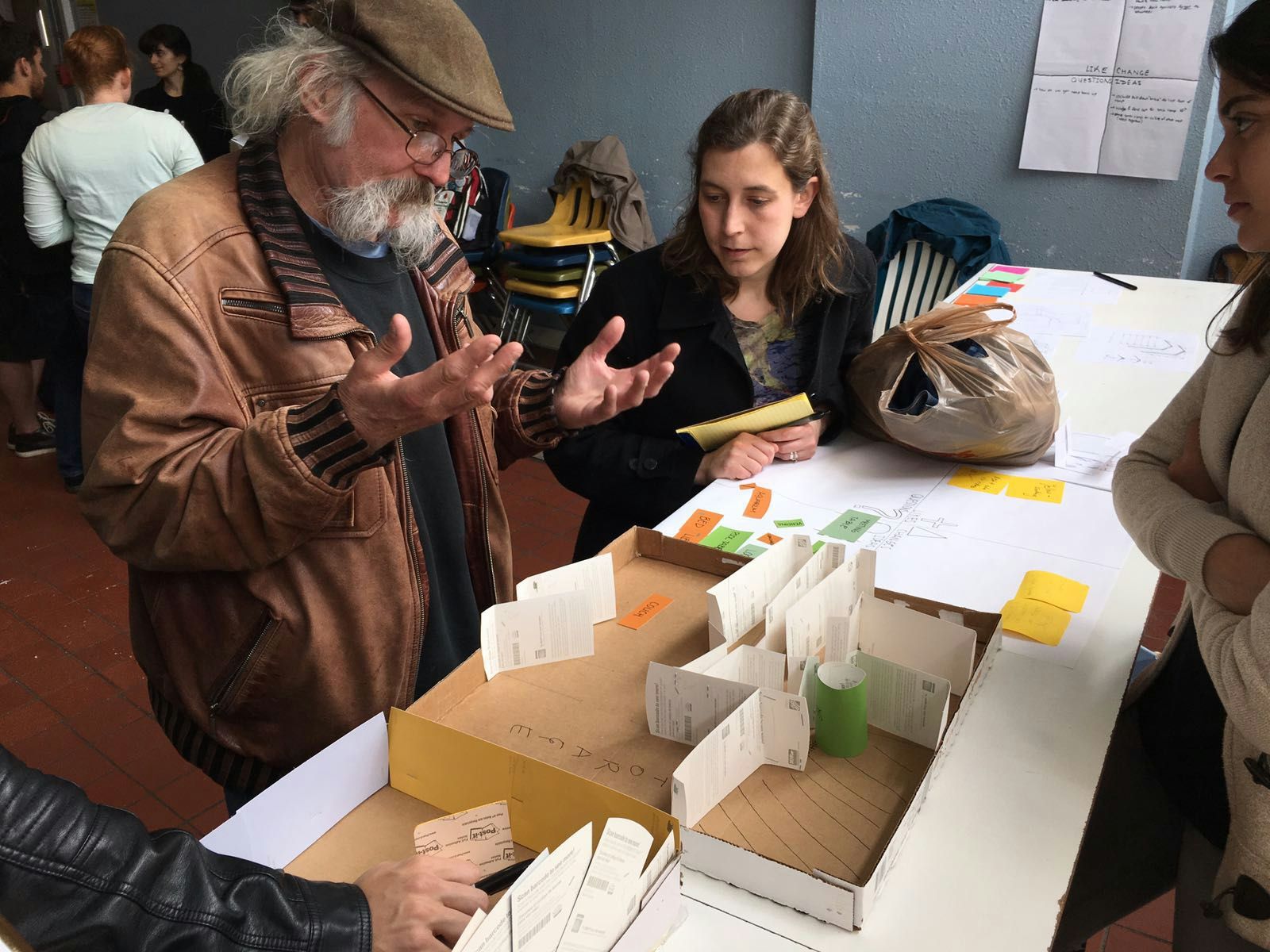Vertically Integrated Project
CI-VIP: Community Initiated VIP
- RIT/
- Vertically Integrated Projects/
- Community Initiated VIP

Goals
Universities provide a wealth of resources to our larger community and culture, often collaborating with industry, government, and research organizations. The goals of the CI-VIP are to make these resources more accessible to grassroots organizations, while offering students opportunities to work on real-world social impact projects, providing them with training and experience on how to do authentic community engaged design work, and exposing them to inspiring community leaders. These projects also offer opportunities to be directly engaged in neighborhoods and to connect with local governments, non-profits, and businesses.
Each semester, the project direction will be decided by our community partner(s). Some of the projects will be continuations of work done in the Collaborative Community Capstone, Multidisciplinary Senior Design or other courses. Students will learn and apply methods from Asset Based Community Development (ABCD), Social Entrepreneurship, and Participatory Human Centered Design and apply them to aspects of the participatory design process including research, data collection, qualitative interviews and focus groups, developing tools for community feedback, synthesis, community brainstorming techniques, collaborative design, prototyping, building, and implementation with plans for sustainability.
The final goals are a quality experience of collaboration and learning for all members of the team (students, faculty, leaders, community members) and a sustainable project outcome in the community.
Issues Involved or Addressed
The specific project work will depend on community project needs, but may involve design of objects or systems, prototyping, understanding legal and policy frameworks, community based research, interviews and focus groups, experimental design, using sensors for data gathering, proposal writing, planning and project management, advertising, application or website development, etc.
Methods and Technologies
- Asset Based Community Development (ABCD)
- Participatory Research and Popular Education
- Human Centered Design
- Wicked Problems
- Systems Practice
- Social Entrepreneurship
- Engineering Design Process
- Proposal writing
- Using SHED tools for prototyping
Specific tools, especially in the technical sphere, are project dependent. We will seek expert advice as needed. In the past we have done traffic studies, built structures, created museum-style interactive installations, proposed street design changes to City Council, and experimented with new food preservation equipment designs.
Academic Majors / Major Area of Interest
- Engineering Majors (especially Mechanical Engineering and Industrial Systems Engineering)
- Engineering Technology Majors (especially Civil Engineering Technology Environmental Management and Safety and Manufacturing and Mechanical Engineering Technology)
- Software Engineering
- Industrial Design
- Liberal Arts Majors and Minors (especially Science Technology Society, Museum Studies, Anthropology, and Public Policy)
- Business
- SOIS
- Other majors with interested in community engagement
Related Projects
Past Multidisciplinary Senior Design and Collaborative Community Capstone Projects
- El Camino Community Playspaces with Ibero American Development Corporation
- Sharing the Oral History of the El Camino Neighborhood with Ibero American Development Corporation<
- Safety and Accessibility for Everyone: Improving Access to Rochester’s International Plaza with Ibero American Development Corporation. Related RIT news story here.
- Design for Manufacture of a Community Crop Drying System with Haiti Outreach Pwoje Espwa









